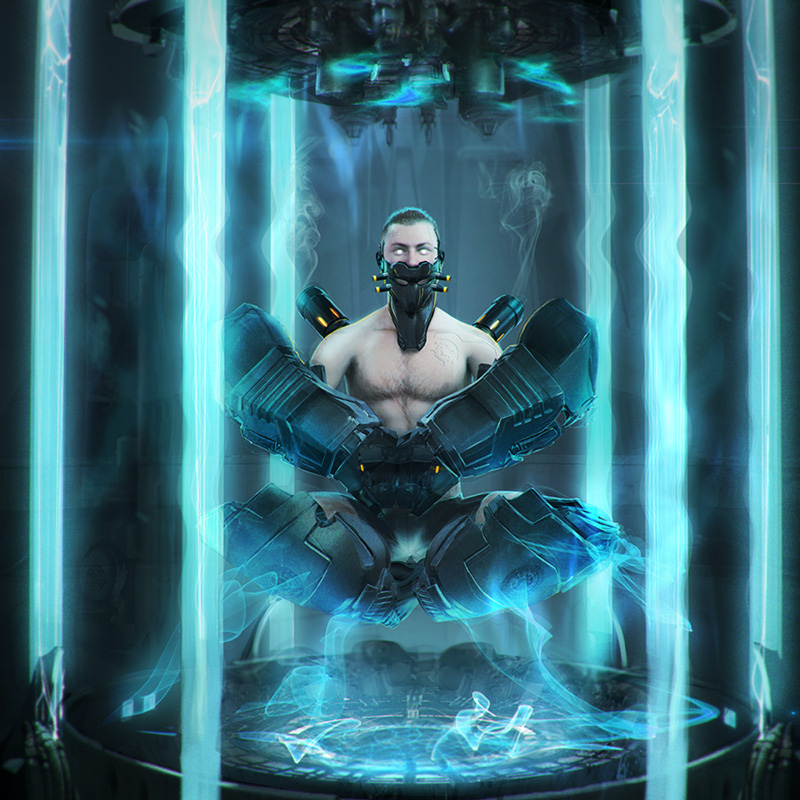Thing is, they do use magic. It's just called psionics. Walks like a duck, quacks like a duck, possibly tastes like duck to mind flayers.
There isn't that much distance between psionics and Magic and never has been. The fact that numerous spells and powers overlap and always have is evidence of that.
There's a very specific distance and difference in functionality, though, which makes the differentiation worthwhile and is part of the appeal of the class for some players. Including new players, I'd note (in my personal experience, of course).
Overlap isn't evidence of much because it's more the result of specific game mechanics leading to "convergent evolution" more than anything else.
So pushing it towards being regarded as "merely a kind of magic", whilst definitely possessing a sort of "everything in the right box!" cleaning-up-the-garage kind of appeal, isn't really helpful. That's kind of a side-issue, though.
In the context of whether Mystic is a good name, well, I don't think it has a huge amount of bearing. The name "Mystic" is really going to divide D&D players into three groups:
1) Players who remember what a Mystic was in earlier editions, which is to say, some kind of light/no armour-wearing quasi-hippy-ish spellcaster, who may or may not have been a faux-pacifist, and probably had various New Age-ish abilities.
For them, this name is going to cause initial confusion, because this class is very far from that, and indeed encompasses some pretty macho armoured melee types and the like. Anyone who has been playing that long likely can handle class name changes, though.
2) Players who've vaguely heard of a "Mystic" class but don't know much about it. But they do likely know it's not the same as a Psion or Psionicist or Psychic Warrior or the like. They're likely to be a bit confuzzled too.
3) Players who've never heard of a Mystic class and have no idea what it is. I don't expect them having much trouble accepting that it's a catch-all psionic class, as most psionic types in fantasy (and even SF) fiction are to some extent mystical (as in a bit vague and New Age-y, rather than all books, beards, staffs and shouting like wizard-types or religious like cleric-types).
Personally, as someone who loves Psions and Psychic Warriors, and who has also played Mystics in RC D&D and in 2E AD&D, I think it's fine as a name. It's not stellar, and it follows the very mildly unfortunate (imo) trait of 5E in using up existing names for very different things (thus likely causing confusion and minor issues down the line when said thing inevitably makes it's return), but it's not horrible.
The only real problem I see with it is that when most people hear Mystic, D&D-player and not alike, they think New Age, they think vague and wobbly, they think of monks up mountains and tie-dyed long-haired types, they don't really think of badass warriors with psychic powers. Yet that's one of the main uses this class is likely to be put to.
That said, what are the alternatives? Psychic? Worse than Mystic. Calls to mind charlatans and generally seems retro in a bad way. Psion? Meh. Tells you nothing unless you're already a D&D player and even then it's a bit vague. Pillars of Eternity called essentially the same thing Cipher, but using a name like that requires you to then explain what that is and how it fits into the setting, which is kind of a big deal (perfect for Pillars, of course).
So we have Mystic - which is vague, unenlightening and New-Age-y, but does at least relate to what they do, and does allow them to be fit into settings pretty easily because it doesn't establish them as something weird. So I think it works. Gets my vote anyway, and I'm very surprised to say that but...
(My only real concern with the class remains the needless and ill-fitting connection to the rather passe-seeming Far Realm)



